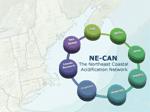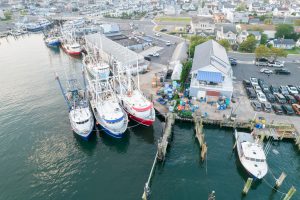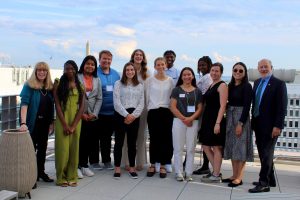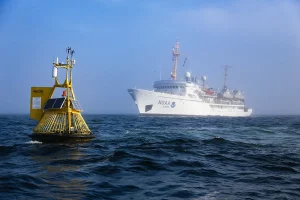Ocean Acidification Concerns, Information to be aired at NorthEast Stakeholders Workshops
 The Northeast Coastal Acidification Network (NECAN) links scientists, federal and state agency representatives, resource managers, and affected industry partners dedicated towards coordinating and guiding regional ocean acidification observing, research, and modeling endeavors. (Credit NECAN)
The Northeast Coastal Acidification Network (NECAN) links scientists, federal and state agency representatives, resource managers, and affected industry partners dedicated towards coordinating and guiding regional ocean acidification observing, research, and modeling endeavors. (Credit NECAN) The Northeast Coastal Acidification Network (NECAN) is hosting an “Ocean and Coastal Acidification Stakeholder Workshop” on December 10, 2014 at the Darling Marine Center in Walpole, Maine. The purpose is to inform and learn from fishermen, clam harvesters, aquaculturists, and coastal water quality volunteer programs their concerns and state of knowledge about ocean and coastal acidification (OCA). The workshop is designed for participants to:
• Gain a basic understanding of ocean and coastal acidification science, the impacts to marine resources and ecosystems;
• Better understand the capacity at the national, regional and local levels for research and monitoring;
• Discuss potential for best practices leading to adaptation/mitigation;
• Understand where to find reliable OA resources; and
• Be able to provide information to other fishermen, shellfish harvesters, aquaculturists and water quality colleagues.
This is the first in a series of state workshops planned by NECAN to inform their implementation plan for monitoring, research and information products that meet the needs of regional stakeholders. Subsequent workshops will occur in Massachusetts, Connecticut, Rhode Island, Maritime Canada, and the New York Bight area. Support for the workshops is provided by the NOAA Ocean Acidification program, the NOAA North Atlantic Regional Team, and the U.S. Environmental Protection Agency.
For more information see the NECAN website.
If you're interested in the stakeholder engagement process and want to be involved, please contact Cassie Stymiest at cassie@neracoos.org






